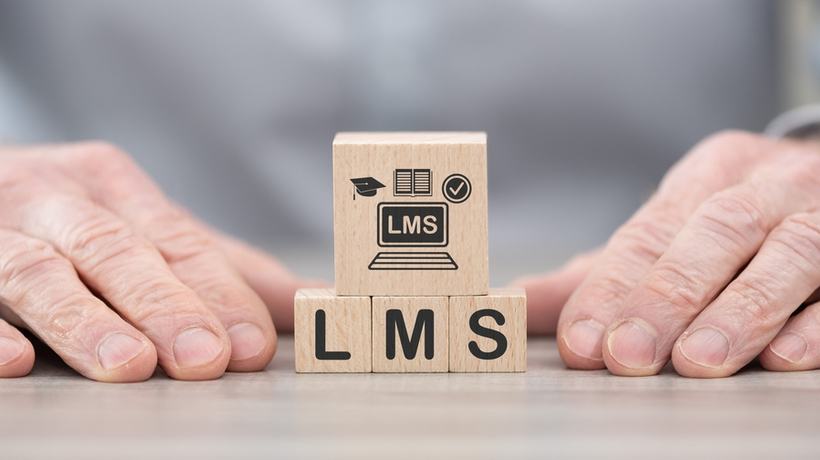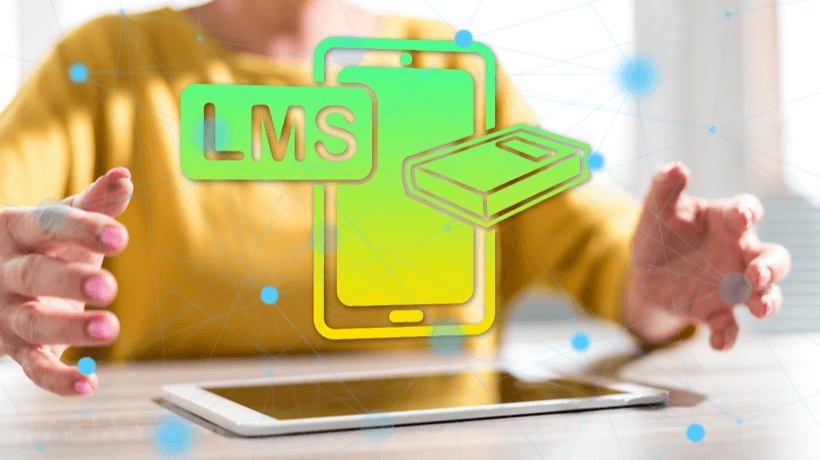Definitive Comparison Of Custom LMS Vs. SaaS LMS
Thanks to technological advancements, the world of learning and teaching has seen significant developments and shifts. Many things have moved to a digital classroom from physical ones. Today, students can access an unlimited amount of textbooks and other resources using their laptops or mobile devices, regardless of where they are.
Through learning management software, critical information can be collected and used to assess learners' strengths and weaknesses, and their learning progress. Based on this data, organizations can tailor their approach to learning for each individual learner to ensure the entire process is both effortless and more enjoyable.
If you're searching for an eLearning solution, you realize the importance of regular, software-based training for your organization's success. However, understanding this fact is only the first step in building a course that can help your employees. Next, you should find a Learning Management System (LMS) that fits your needs. You might find yourself deciding between a custom LMS or a SaaS LMS, and this article will help you with that choice.
Trends Of eLearning And LMS
The worldwide eLearning market in 2019 had a net worth of $101 billion, while $18 billion was generated by the Learning Management Systems market [1]. There is an expected growth in the eLearning market to $370 billion by 2026 [1]. Thanks to eLearning, the learning retention rates have increased by 25–60%, while it takes about 40–60% less time to finish a corporate eLearning course than traditional learning. Below are some of the LMS and eLearning trends.
1. Adaptive Learning
Adaptive eLearning is a trend discussed in the past that will carry on for many years. Through adaptive learning, learners can learn at their own pace and time. Adaptive learning will achieve even greater heights in the future, especially after Artificial Intelligence (AI) integration. The learners will have an easy time choosing the learning paths they want to follow.
2. Big Data Analytics
Just as the world is evolving, so is the process of learning. Learners' needs are fast-changing and demand personalized attention. This can only be ensured by having a good understanding of Big Data analytics. These analytics incorporate user-produced content during interactions with the LMS. Hence, the organization can better understand the needs and behaviors of its learners and tailor courses to their individual needs.
3. Immersive Technologies
In the eLearning and LMS frontiers, immersive learning has shown tremendous potential. Immersive technologies include Virtual Reality (VR), Extended Reality (XR), and Augmented Reality (AR). According to some forecasts, by 2030, over 23 million jobs will employ AR and VR and boost the global economy by about $1.8 trillion. VR and AR technologies will help reduce the gap between practical and theoretical applications, resulting in the development of some promising solutions.
4. Artificial Intelligence
AI will always be a topic of discussion, especially in eLearning frontiers. Due to its commendable capabilities, especially in learning personalization, the role of Artificial Intelligence is becoming increasingly important. It plays an essential part in collecting and analyzing a learner's data from the LMS platforms, including their interests, proficiencies, weaknesses, and strengths. AI is used by organizations to develop voice-enabled bots to simplify content search.
5. Game-Based Learning
The other emerging phenomenon is gamification in eLearning, and many LMS platforms have adopted it. Game-based learning involves using game mechanics to engage the audience in learning while increasing dependability standards. About 83% of learners get the motivation to complete their tasks after gamification [2]. By 2025, it is expected that game-based learning revenues will increase to $28.8 billion [3]. In the future, game-based learning will be among the main pillars of LMS and eLearning strategy because companies are willing to invest more in gamified learning for their benefit.
What Is A Custom LMS?
Custom LMS refers to software developed to address the specific eLearning needs of an organization with customized course building tools to create native integration with HRIS, interactive eLearning content, CRM, and other business systems. It includes custom dashboards, custom reports, gamification features, and much more. Hence this type of LMS allows the organization to have full customization capabilities, functionalities, and integrations.
What Is SaaS LMS?
As you possibly guessed, a SaaS LMS refers to an internet-based one. In this Learning Management System, all functionalities are cloud-based. Though initially intended for eLearning, a SaaS LMS includes data collection, analysis, and reporting. They enhance employee training, team building, and onboarding, making them more effective and efficient.
Pros And Cons Of A SaaS LMS For Businesses
Pros Of A SaaS LMS
- Cost-effectiveness
Driving profits while reducing operational costs is the goal of most organizations, and the SaaS LMS is an IT solution that ensures precisely that. The monthly subscription costs are considerably lower than the ongoing maintenance and initial fees of acquiring a standard LMS solution. - Easy start
SaaS LMS solutions don't require any installation on any gadget, meaning there isn't any need for a remarkable resource. By choosing a SaaS LMS, you can instantly start and implement learning. - Less time-consuming
Since no installation is needed and updates are automatic, a SaaS LMS is less time-consuming to maintain or set up. The provider is tasked with resolving issues and ensuring timely updates to the system throughout your entire contract duration.
SaaS LMS Disadvantages
- Less customization
This type of LMS has predefined features and colors, which considerably limit customizations. To make any changes in a SaaS LMS, you'll need more money and resources. - Troubleshooting might take too long
As stated previously, the service provider is tasked with any maintenance. Hence, you'll have to report any bugs and problems to your service provider, which may take a lot of your time. Unfortunately, this also means that the problem will be resolved within your provider's timeframe rather than on your own schedule. - Not easily scalable for larger numbers of users
Although scalability is among the core elements of cloud platforms, SaaS LMS platforms aren't easily scalable for a larger number of users. This can be attributed to the cost implications of the move. You also have to have the service provider's authorization, which might mean you have to meet some criteria. - Accessibility with devices
Though accessibility is their most significant selling point, it can also be the most considerable drawback to a SaaS LMS. The devices must have an internet connection to access the content. Unfortunately, if your device cannot connect to the internet, you'll not be able to access the content.
Pros And Cons Of Custom LMS
Pros Of Custom LMS
- Complete customization of functionality
In a custom LMS, you can customize your eLearning solution fully. You can also add extra features and, at the same time, adjust the colors and layouts. When complete, a custom LMS could be used with no programming skills. - Better functionality and independent vendors
In a custom LMS, you can choose particular elements and features that suit your needs. Hence, the product becomes more functional and intuitive. You could also get the solution from a particular independent vendor, meaning you'll have dedicated service. - Branding
You can integrate your branding into the solution by developing the LMS platform in-house. This includes logos, colors, and slogans, among other branding elements. Hence, you will conduct employee or corporate training while reflecting the organization's brand image and enhancing credibility. - Scalability
Since the LMS platform can be customized according to your needs, it is also easy to scale it based on the number of employees you plan on training. Therefore, unlike a SaaS LMS, you can save on bandwidth and storage space without experiencing losses. - Better security
Unlike in a SaaS LMS, where you have to report bugs and security issues to the platform vendor for a resolution, your in-house development team deals with the security issues in custom LMS development. By addressing the security issues when they arise and constantly scanning for any problems, custom LMSs have better security. You could also tailor the security needs to meet your organizational specifications. - Better quality assurance (QA)
Since the solution is tailored to your specific needs, it has better quality assurance than the SaaS LMS. Your QA team can perform functionality tests to improve the platform's reliability, availability, and usability, ensuring that the LMS solution follows your predefined requirements per learner. Your development team can also choose a tech stack that best fits the custom LMS, including on-premise or cloud for hosting and front-end or back-end program languages. - Flexible with third-party integrations
There are limitations to third-party integrations in a SaaS LMS, and this is due to the platform's policies and security considerations. However, a custom LMS is flexible for third-party integrations, meaning that it opens a whole new world of learning features and experiences. Using APIs, a custom LMS can connect with other services based on the organization's needs. - Independence of vendors
A custom LMS ensures the independence of vendors. This means that any needs are promptly addressed, and also that you can get professionally customized content per your organizational needs. - Control over the infrastructure
The organization has complete control over both hardware and software infrastructure with a custom LMS. Therefore, the organization can upscale or downscale the infrastructure based on the number of employees, upgrade it to patch security loopholes, and promptly address any security vulnerability.
Custom eLearning Platform Cons
- Time-consuming
You'll use a lot of time in setting up a custom LMS because everything from gathering the requirements to developing the solution is done from scratch. Hence, the delivery time might be longer than with a SaaS LMS solution. - A development team is needed
Custom LMS development needs a group of developers. This means that you have to pay them allowances and salaries, making the process of custom LMS development expensive. - More investment required
Unlike in a SaaS LMS solution that is shipped complete, you need to invest more in a custom LMS. Hiring offices for the developers, paying developer salaries and allowances, and purchasing the infrastructure are just some of the costs involved in developing a custom LMS. Besides investing money, you also have to invest time in developing this solution. - Not fast implementation
Even after developing the solution, implementing it isn't as fast as in a SaaS LMS. You have to purchase the infrastructure, perform tests, customize the solution, and install it on the devices. This also takes some time, meaning implementing a custom LMS isn't easy. You also have to develop the training content, further delaying implementation.
Wrapping Up
As you might have realized by now, choosing an eLearning solution for your company might not be that easy. There are several things you must consider, and budget and time considerations play a huge role in the selection. Other factors include customization, hosting, functionality, scalability, quality assurance, security, addressing problems, and implementation time. However, implementing a customized LMS solution combined with additional custom capabilities might serve your organization best.
It's better to choose a custom LMS when you need a solution tailored to your business needs, when you want to have more control, and when you need a feature-rich solution. On the other hand, you need a SaaS solution when you require a fast implementation with no or limited customization.
References:
[1] Size of the global e-learning market in 2019 and 2026, by segment(in billion U.S. dollars)
[2] 54 Gamification Statistics You Must Know: 2021/2022 Market Share Analysis & Data
[3] Global Game-based Learning Market Spikes to $28.8 Billion by 2025









